I dislike writing these articles, but here we are. According to HardwareLuxx, Synology is on a rough course with generations-old sub-par NAS hardware and now appears to be locking its NAS units to its own branded hard drives in its upcoming 2025 Plus models. This is a shame since a few years ago, Synology had neat hardware.
Synology Lost the Plot with Hard Drive Locking Move
In 2021, we covered how Synology launched an Enterprise Hard Drive Line and started locking Drives for New NASes. That was in a higher-end segment. Realistically, it became hard to recommend that type of solution. QNAP and iXsystems (TrueNAS) pushed ahead with ZFS support and better hardware, but it did not impact the majority of users.
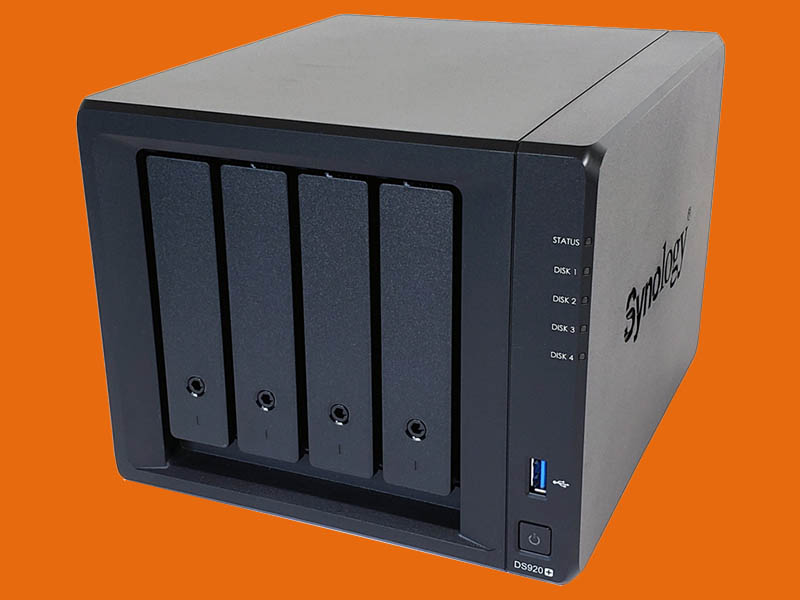
Translating a relevant bit for our readers.
“…since an estimated hard drive health report is essential for both private and professional use, this creates a compulsion to use Synology’s own or equivalent drives. Additionally, certain features such as volume-wide deduplication, lifespan analysis, and automatic firmware updates for third-party devices will be disabled. There are also restrictions on the creation of storage pools, as well as, of course, support in the event of failures, which are not further specified.” (Source: Translated from HardwareLuxx)
Changing this to require Synology branded drives in the “Plus” line is silly. There are only a handful of hard drive manufacturers, and Synology does not have anywhere near the scale to compete at hard drive manufacturing. Consolidation in the hard drive industry was driven by huge economies of scale benefits. Without scale, and a library of patents, it is a very hard market to enter. As a result, Synology must be simply re-branding drives. Labeling drives as a “Dell”, “NetApp”, “HPE”, or other big vendor drive has been going on for years (decades?) on both the hard drive and SSD sides of storage. Realistically, there is usually very little that gets changed in vendor firmware from the drive manufacturer firmware. When we see some changes, it is usually in conjunction with a branded storage controller that also has corresponding firmware changes. Firmware tweaks very rarely target the built-in PCH or SoC SATA controllers on Intel, AMD, and Arm platforms in the mainstream server and storage market.
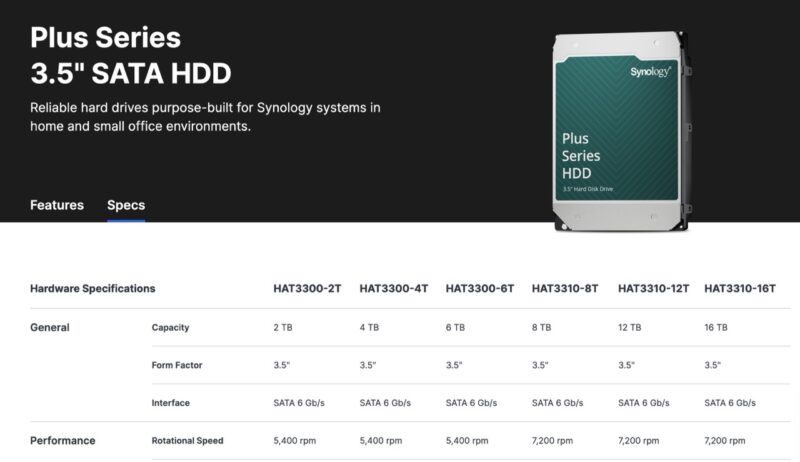
Let us just call this what it is. It is a grab for extra margin dollars. The challenge is that it is bad for Synology’s customers. For example, the Synology Plus series only scales to 16TB currently with the HAT3310-16T. Synology’s enterprise series scales to 20TB. WD Red Pro drives are already pushing 26TB. Or in other words, in an 8-bay desktop NAS segment to use Synology’s branded drives with Synology’s full feature set has a maximum raw capacity of 128TB. For a QNAP or TrueNAS 8-bay, that is 208TB of raw capacity.
We just looked at the drives on Amazon, to see when they would be available and their pricing.
- Synology’s HAT3310-16T has an estimated delivery date of May 6 to May 28. (Amazon Affiliate link)
- WD Red Pro 16TB has an estimated delivery date of April 25 to April 29 (Amazon Affiliate link) while being $10 less expensive
- Toshiba N300 Pro 16TB has an estimated delivery date of May 4 to May 9 (Amazon Affiliate link) while being $11 less expensive
- Toshiba N300 16TB (CMR) is showing overnight availability so April 19 (Amazon Affiliate Link) and is $35 less expensive
- Seagate IronWolf Pro 16TB is showing same day availability so April 18 (Amazon Affiliate link) but is $10 more expensive
When a drive fails, one of the key factors in data security is how fast an array can be rebuilt into a healthy status. Of course, Amazon is just one vendor, but they have the distribution to do same-day and early morning overnight parts to a large portion of the US. Even overnighting a drive that arrives by noon from another vendor would be slower to arrive than two of the four other options at Amazon.
For Synology customers, the challenge of being vendor-locked into using Synology branded drives is not just about alleged firmware improvements. It is also about being able to keep data secure while finding easy replacements. A NAS in 2025 needs to work with any NAS rated hard drive because frankly there are not that many vendors out there. If a particular model was found to have a very high year 2 failure rate, you would naturally want to start replacing drives with a different model. Vendor locking features to specific Synology drives prevents this, but it also allows Synology to use different vendors behind the label without telling its customers.
Additionally, there can also be concerns about drive availability in the long-term. If your NAS is vendor-locked to only use Synology drives, then as owner of that NAS you are fully dependent upon Synology’s survival as a company and that they would continue manufacturing drives in the capacity points that you want. Sure, they make 2TB and 4TB model Synology drives today, but what about four years from now when you need a replacement drive? What if Synology sells or merges with some other technology vendor, or goes out of business? This move creates concerns within the Synology ecosystem that did not exist before, and that is not good for customers.
Final Words
Many will notice that Synology devices have been largely absent from STH even though Synology is a very popular NAS solution. That is not by chance. While I actually like the company’s software, Synology’s NAS hardware feels extremely dated to the point that it feels like most of the solutions are running generations old hardware. The combination of neglecting hardware refresh cycles and now vendor locking features to only using Synology drives will ultimately hurt users. I cannot imagine recommending a NAS solution where I could not get a replacement drive in under 24 hours, if at all, and that makes Synology extremely hard to recommend in 2025. If the situation changes, then I am happy to have our team review more Synology gear. In the meantime, there are plenty of other options out there.

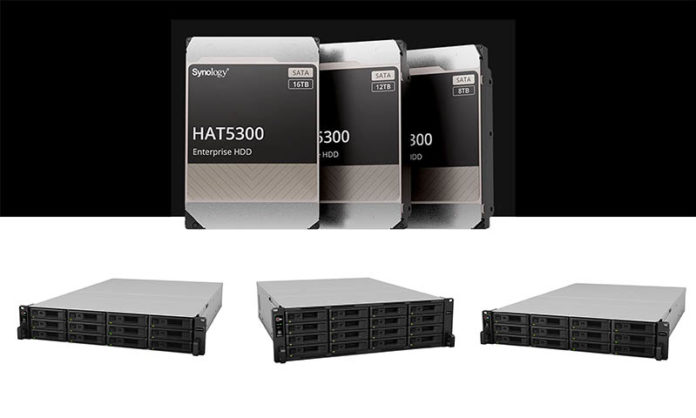
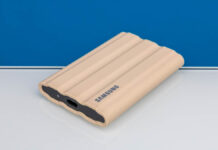
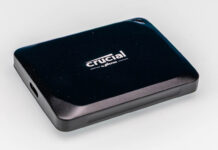
Which is the best NAS solution for SMB for backing up MS 365 and some VMs?
As a Synology user, I don’t just feel a huge letdown by such a short-sighted company but I’m compelled to boycott them. And it’s not about the money but the major lock-in and nonsense decisions. My DS1821+ is full, no more purchases from Synology, no further expansions, and no good publicity.
When my DS718+ reach EOL my next home NAS won’t be Synology simple as that.
Great time to consider TrueNas
As a Synology user, I feel that it’s a way to exit the consumer market. First surveillance station, now this. Really doesn’t feel like consumer brand loyalty is a factor anymore. Wish this had come out before I bought Synology router
Not forgetting dropping Video Station and no longer supporting HEIC images. Dropping these was hugely annoying as it means my NAS can do less than when I bought it.
The above, combined with the lack of CPUs supporting transcoding and the rumoured no upgrade to 10Gb mean my next NAS won’t be a Synology. This is a shame because my existing one has been rock solid.
Why would you want to run something other than TrueNAS? There are plugins for everything, as tends to be the case with open source.
If anyone has a solution to MS365 backup and ABB, I will give up on Synology.
After adding 5 Synology NASes for the business and personal use, this will come to an end. The hardware models while stable, is getting outdated by the year. Time to move on to some other brands or TrueNas
Obviously any fight over margins is not going to make people happy; but this seems like the most insulting way to go about it.
Synology’s main thing is having software that’s a bit more pulled together than some of the more…optimistic…NAS vendors, especially the ancillary integration bits and so on.
Their hardware has been pretty decisively anemic; and they are essentially adding negative value to their rebadged drives since they only come in smaller sizes.
Dollars are fungible, so how they are doing it is more about the insult than the injury(though that will certainly make them less competitive); but they want to charge me more not for the part of the package that they actually do an OK job with; but for the part that they essentially have nothing to do with? Not a good look.
A few years ago people discovered device-managed shingled magnetic recording used in Western Digital Red drives marketed for NAS and RAID. Those drives and others may be an ongoing source of support problems that lead Synology to create their own brand out of necessity.
While I understand very much the concern about quickly obtaining replacement drives, my question is whether the Synology drives are fully compatible with regular Linux on a standard PC or competing NAS. Sometimes a NAS box fails or goes EOL and stops receiving updates and one wants to repurpose the drives in another device.
So… don’t buy Synology is what I’m getting from this. Don’t buy ANYTHING Synology and instead teach yourself how to build and properly configure your own NAS from standard off-the-shelf parts. That way, you will be free to use any brand of drives you want or feel economically sensible AND have all the features like data de-duplication, lifespan reporting and automatic firmware updates. Thanks, Patrick. Will comply.
OEM drives are NOT all the same! As someone who tested incoming drives at a ‘surplus’ retailer, I can ABSOLUTELY say that all drives from a vendor are not the same. Drives that had slightly high error rates or ran warmer than others were sold to us as surplus. The best drives were kept for the ‘Branded’ (EMC) NAS drives. Those branded drives ABSOLUTELY were better! Of course the warranty is better through the branded seller and of couse the branded seller is also concerned to keep a great reputation.
In my most recent NAS, of the 4 – 6TB OEM drives I installed, one has consistently run just a bit warmer. Surprise, now two years later that drive is throwing errors occasionally so I must replace it before it fails more seriously.
Synology may be making more money on the branded drives they sell. However I sincerely doubt they are simply rebranding without a better level of testing. They may simply be listening to the corporate customers that need consistant better quality.
Do not buy HDD via Amazon because packaging is weak and often disks are broken, furthermore most of the time, they come from grey market missing manufacturer warranty.
But with Enterprise SSDs, there is no risk to buy from Amazon, I found U2 NVMe 3,84 and 7,68 TB less expensive than the SATA models of the same brand (Kingston).
About Synology, they are going to suicide their brand because their prices are ridiculously high, with poor availability and extremely slow delivery.
2 years ago when I was looking to purchase a new NAS system I did a fair amount of research on brands and options. I had been building my own “servers” for home use for years, way back to the first WHS release, but wanted to make the move to a pre-built system with more and better features. I was quite close to getting a Synology unit, as the feature set looked very strong overall. The deciding factors that made me go with QNAP instead were the fact that back then NVMe SSD’s could only be used as cache drives and not storage, and that Synology was moving to a hardware lock on drives coming up in the next few model years. That was a non-starter for me, as I will use what hardware I wish to use based on my own needs, not what is dictated by a hardware manufacturer so they can sell their own brand. I can see they have doubled down on this stupid practice, much as HP has done with it’s printers, so I am glad I gave them a pass.
When you can buy a weirdly named NAS frame from AliExpress for less than a Synology that is built to purpose or uses a generic Asian NAS software, the only place to add value and margin is by demanding named hardware and accessories.
Make no mistake Synology is getting undercut in the market and they are doing what most companies do when they can’t compete, they move upmarket until they can get bought out by some tech sugar daddy like HP, Lenovo or Softbank.
Dell already tried this 10 or so years ago with their servers, and there was a huge outcry from their customers. It must’ve actually affected their sales because the about-face was pretty sudden.
I just don’t get why there’s the need to force lock in. It almost always backfires on the vendor. Sell your premium drives sure, but don’t actively prevent people from using their own drives if they wish.
I won’t be using Synology brand because of this but for the people that are is there a way flash the firmware on drives so the NAS thinks it’s a Synology drive?
Did a short stint as a prior small business SysAdmin. The Network back-end for Internet backups were stupidly slow and could not get an agreement for speeds to handle. So the Synlogy was approved and shoved in 8x16TB worth of drives. Veeam handled all the duties. Seeing how this is going down, glad I am a hardball Free/TrueNAS admin for my home NAS and backups.
Did Broadcom buy them??? Seems like a dumb move.
I used to recommend Synology to all my customers since ReadyNAS was discontinued. Looks like it’s time to jump ship again. I’d have remained Synology’s customer & advocate if they hadn’t taken this greedy step.
The industry is changing… Synology are simply joining the exodus-cult along with Vmware and so on and so forth… they’re just one of many, a lot is changing very rapidly, and what may look like a dollar grab is actually much more deeply political than you could imagine…
Just curious here as a consumer, prosumer, or commercial/business user of a NAS system I probably wouldn’t hold the NAS itself as the cause of a failed drive, I’d blame the drive manufacturer. I have to wonder if Synology has been inundated with complaints about their systems causing failed drives. I haven’t heard of any, so I have to wonder why they’re taking this track of locking their systems to a specific company “certified” drive. Are they that afraid their systems won’t work with any “non-certified” drives? Have they tested drives from other manufacturers and found they won’t work well with their systems? If so, it would be in their best interest to publish those results, keeping it a secret serves no one. To me this sounds like poor hardware design and as stated above, their hardware and design are generations old, so if they can no longer compete the end is near for them. I’m keeping an eye on the state of the art for a suitable replacement for my DS423+